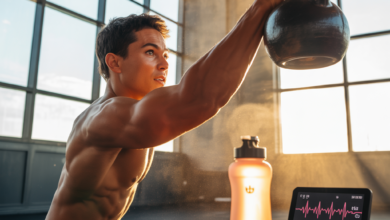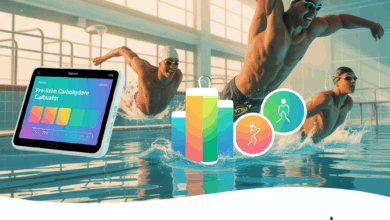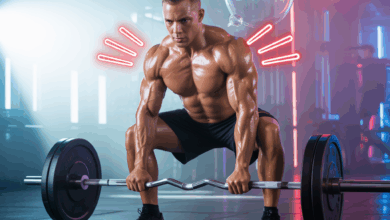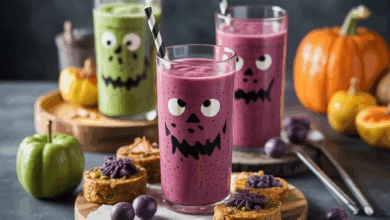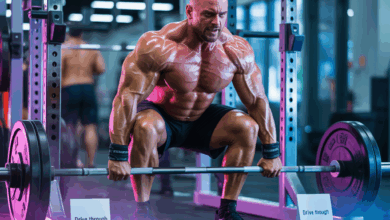Foods to Avoid Before Swimming: Maximize Your Swim with Smart Nutrition
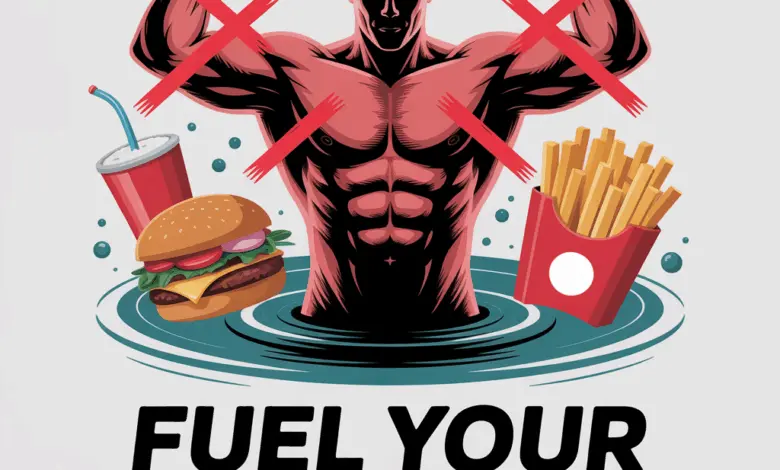
Have you ever jumped into the pool after eating only to feel sluggish, bloated, or even crampy mid-lap? If so, you’re not alone. What you eat before swimming can have a big impact on your energy levels, comfort, and overall performance in the water. But the question remains: what are the foods to avoid before swimming to help you feel your best and keep moving smoothly?
As a health and fitness enthusiast who’s spent countless hours in the pool, I’ve learned that timing and food choices can make or break your swimming session. In this article, we’ll explore the common foods that may sabotage your swimming experience, share practical nutrition tips, and discuss how to fuel your body so you can glide through every stroke with confidence.
Why Paying Attention to Pre-Swim Nutrition Matters
Swimming is a demanding full-body workout that requires strength, endurance, and coordination. Eating the wrong foods before hopping into the water can lead to discomfort, indigestion, or even painful cramps that cut your workout short.
When you eat, your digestive system kicks into high gear, diverting blood flow away from your limbs and muscles to help process your food. If your stomach is too full or heavy, this may interfere with your swimming, especially if you’re attempting high-intensity laps or longer sessions.
Top Foods to Avoid Before Swimming
Although everyone’s body responds differently, certain foods are widely recognized as best to steer clear of before swimming. Here’s a list explaining why:
1. Heavy, Fatty Foods
Greasy burgers, fried chicken, cheese-laden pizzas, and creamy sauces are delicious but take longer to digest. Eating fatty foods before swimming can cause sluggishness, bloating, and acid reflux—none of which are ideal when you’re trying to focus on your technique or speed.
2. Carbonated Drinks and Soda
Though tempting, especially in hot weather, carbonated beverages can cause gas and bloating. That uncomfortable pressure in your stomach can distract you and hinder your ability to perform your best.
3. High-Fiber Foods
Vegetables like broccoli, cauliflower, beans, and whole grains are great for overall health, but too much fiber right before swimming can lead to gas, stomach cramps, and the urge for frequent bathroom breaks.
4. Sugary Snacks and Candy
Simple sugars can cause a quick spike in energy followed by a crash. Eating candy or sweet desserts before swimming may leave you feeling fatigued midway through your workout.
5. Dairy Products
If you’re lactose intolerant or sensitive to dairy, consuming milk, cheese, or yogurt before swimming could cause bloating, gas, or diarrhea, which is clearly uncomfortable when you’re in a public pool.
What to Eat Instead: Fuel Your Swim the Right Way
Instead of these tricky foods, opt for light, easily digestible meals with balanced carbs, protein, and healthy fats that provide sustainable energy.
Best Pre-Swim Food Options
- Bananas: Packed with potassium, bananas help prevent muscle cramps and provide quick energy.
- Oatmeal: A small bowl of oatmeal offers slow-release carbs to keep your energy steady.
- Toast with Natural Peanut Butter: Combines carbs and protein to fuel your muscles.
- Smoothies: Made with fruits and a protein source like Greek yogurt (if tolerated), smoothies provide hydration and nutrients.
- Rice Cakes with Avocado: Light and easy to digest, providing healthy fats without weighing you down.
Try to eat your pre-swim meal about 1.5 to 2 hours before hitting the pool to give your body enough time to digest and absorb those nutrients.
Additional Tips to Enhance Your Swimming Performance
Stay Hydrated
Dehydration is one of the biggest energy killers during any workout. Drink water before, during, and after swimming to maintain optimal hydration. If you’re swimming for over an hour, consider an electrolyte drink to replenish minerals lost through sweat.
Warm-Up and Stretch
Incorporate dynamic stretches and warm-up drills before swimming to activate your muscles and improve flexibility. This prepares your body to handle the workout and reduces the risk of cramps or injury.
Experiment with Workout Routines
Not sure how to make the most of your swim workouts? Check out our comprehensive workout routines page for varied swimming plans that suit all skill levels, from beginners to competitive swimmers.
Real-World Examples: When Food Impacted My Swim
I once grabbed a quick cheeseburger and soda before a late-afternoon swim—big mistake. Halfway through, I felt heavy, sluggish, and battled stomach cramps that forced me to stop early. From that day, I switched to light meals like a banana and peanut butter toast and noticed an immediate improvement in my energy and comfort in the pool. Remember, what you fuel your body with is as important as your technique.
Frequently Asked Questions about Foods to Avoid Before Swimming
Q1: How long before swimming should I eat?
It’s best to eat a meal 1.5 to 2 hours before swimming. For smaller snacks, 30 to 60 minutes before your session is usually fine. This timing helps digestion and prevents stomach discomfort.
Q2: Can I drink coffee before swimming?
Moderate coffee intake can improve focus and endurance due to caffeine, but avoid drinking it on an empty stomach or in large quantities, as it might cause dehydration or acid reflux.
Q3: Is it okay to swim on an empty stomach?
Swimming on an empty stomach is acceptable for light sessions, but for intensive or long-distance swimming, having a small, balanced snack beforehand can help maintain energy levels and prevent fatigue.
Conclusion: Master Your Swim by Avoiding These Foods
Knowing which foods to avoid before swimming is key to unlocking your full potential in the water. Steering clear of heavy, fatty meals, carbonated drinks, and high-fiber or sugary foods can help prevent cramps, bloating, and dips in energy. Fueling your body with light, digestible, and balanced meals ensures you stay energized and comfortable throughout your swim.
Ready to improve your swim nutrition and overall fitness? Explore our detailed nutrition guides and wellness tips sections to build a healthier lifestyle that supports every stroke!

